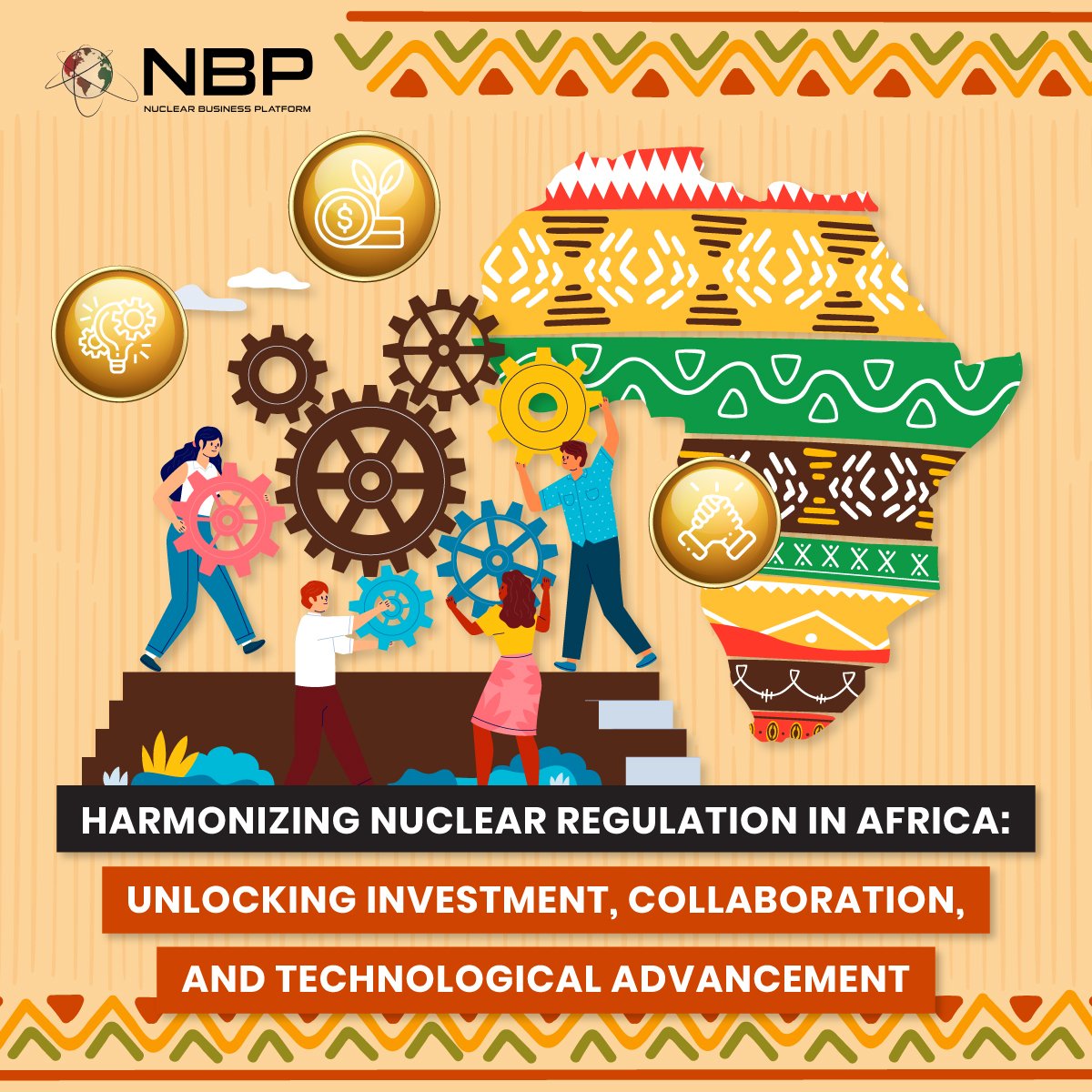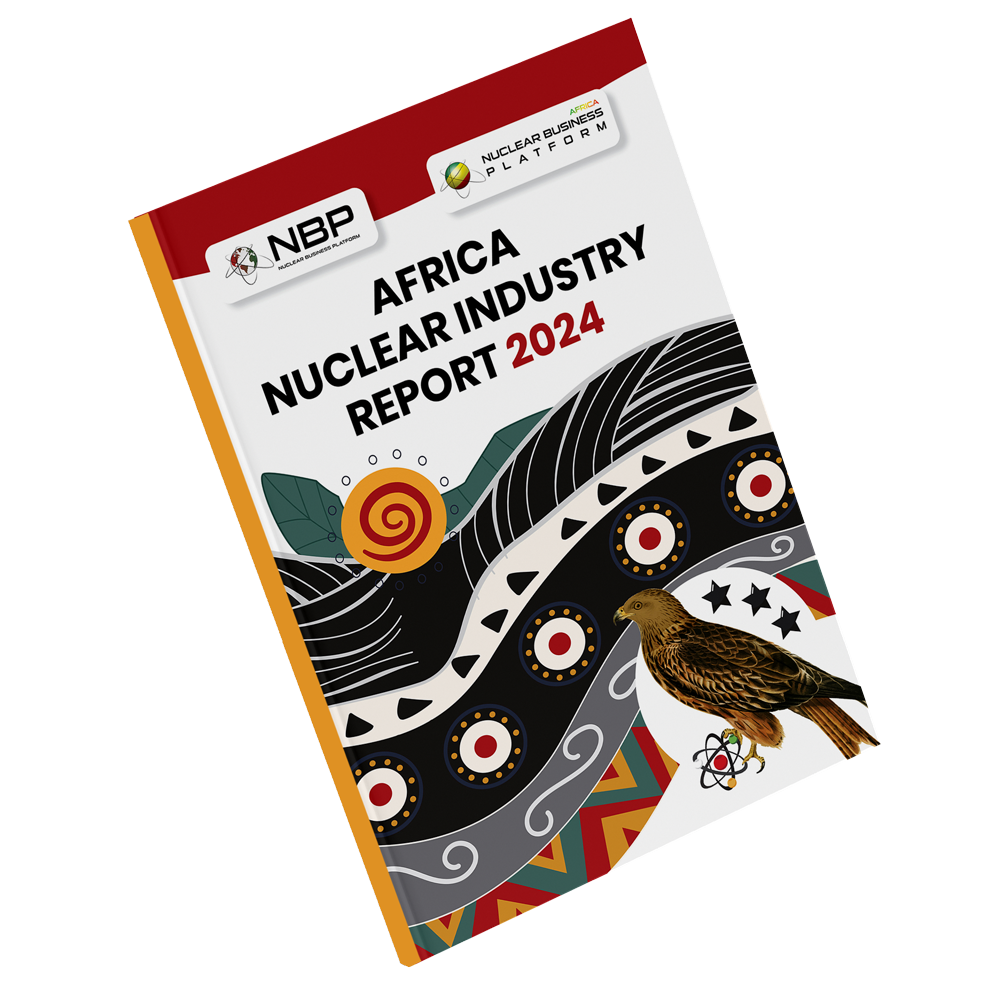Harmonizing Nuclear Regulation in Africa: Unlocking Investment, Collaboration, and Technological Advancement
As Africa accelerates its nuclear energy ambitions to support industrialization and economic growth with projections indicating a remarkable addition of 15,000 megawatts (MW) of new nuclear energy capacity to the continent by 2035, the continent’s fragmented regulatory landscape presents both challenges and opportunities. The absence of a harmonized nuclear framework complicates investment, prolongs project approvals, and creates barriers for international nuclear companies. A unified approach to nuclear regulation across African nations would not only enhance market accessibility but also streamline compliance processes, foster investor confidence, and accelerate the deployment of nuclear power.
The Evolving Nuclear Regulatory Landscape in Africa
The continent is witnessing a surge in nuclear development, with several nations making significant strides at different stages of regulatory and infrastructural progress. While South Africa and Egypt have well-established nuclear regulatory bodies, countries like Nigeria, Ghana, and Kenya are advancing their nuclear governance structures. Emerging players such as Rwanda, Uganda, Burkina Faso, and Ethiopia are actively laying the groundwork for nuclear power integration.
According to the Nuclear Business Platform (NBP), 21 African nations are currently exploring nuclear energy:
Tier 1: South Africa, Egypt, Ghana, Uganda, Nigeria, Rwanda, and Kenya have firm commitments to nuclear power, with projected deployment timelines between 2030 and 2037.
Tier 2: Morocco, Burkina Faso, Ethiopia, Tunisia, and Niger are actively developing nuclear infrastructure and regulatory frameworks.
Tier 3: Senegal, Zambia, Sudan, Tanzania, DR Congo, Namibia, Algeria, Zimbabwe, and Burundi have expressed strong interest in nuclear energy and are initiating early-stage planning.
Despite this momentum, regulatory inconsistencies across African nations remain a key barrier to efficient project execution and financing.
The Case for Regulatory Harmonization
A harmonized nuclear regulatory environment would provide multiple advantages:
Streamlined Licensing and Approvals: Standardized regulations across African nations would simplify the entry process for international nuclear companies, reducing bureaucratic hurdles and expediting project timelines.
Risk Reduction for Investors: Consistency in safety and compliance measures enhances transparency, making African nuclear projects more attractive to global financiers and technology providers.
Enhanced Regional Collaboration: A unified regulatory framework could facilitate joint projects, cross-border investments, and knowledge-sharing initiatives, strengthening Africa’s nuclear sector as a whole.
Cost Efficiency: With aligned regulations, companies can reduce costs associated with meeting multiple, often conflicting, compliance requirements across different jurisdictions.
Opportunities for International Companies
The push for nuclear regulatory harmonization presents a strategic opening for international firms specializing in nuclear technology, governance, and infrastructure development. Key areas of opportunity include:
Technology Supply & Infrastructure Development: Companies involved in reactor construction, small modular reactors (SMRs), and fuel cycle management can capitalize on a more predictable regulatory environment.
Regulatory Consultancy & Compliance Services: Firms with expertise in nuclear governance can support African nations in developing harmonized policies, safety standards, and capacity-building programs.
Financing & Investment Partnerships: Financial institutions and energy investment firms can leverage regulatory stability to fund large-scale nuclear projects with reduced risk.
Workforce Development & Training: With a growing demand for skilled nuclear professionals, international organizations can establish training programs, certification courses, and academic partnerships to build local expertise.
Pathway to Implementation
Achieving regulatory harmonization in Africa’s nuclear sector requires coordinated efforts from governments, regional bodies like the African Commission on Nuclear Energy (AFCONE) and the Forum of Nuclear Regulatory Bodies in Africa (FNRBA), and international stakeholders such as the International Atomic Energy Agency (IAEA). Establishing a Pan-African Nuclear Regulatory Framework would streamline safety, licensing, and compliance processes, reducing project delays and fostering investor confidence. A unified regulatory approach would enhance efficiency, making nuclear power deployment more predictable and cost-effective across the continent.
During the Africa Nuclear Business Platform (AFNBP) 2024, Dr. Björn Peters, CFO of Dual Fluid, underscored the importance of a single regulatory authority, stating, “Ideally, I believe they should build one regulator who works for all African countries. One important advantage would be that a nuclear reactor design licensed in one country could easily be built in a neighboring country.” A centralized regulatory body would remove redundancies, expedite approvals, and facilitate cross-border collaboration, ensuring a smoother rollout of nuclear projects.
In addition, strengthening regional partnerships is also essential. By fostering cooperation, African nations can share regulatory expertise, safety protocols, and infrastructure, expediting the development of nuclear governance structures. Professor Emmanuel Ampomah-Amoako, Secretary to FNRBA, emphasized this need, stating, “We are very active, and we feel that once we actually work in that space, support other African regulators, and get support from other African regulators, we can move together and have a more consistent system across the African region.” Collaborative efforts will help less-experienced regulators benefit from established frameworks and best practices, improving overall regulatory efficiency.
International engagement plays a vital role in ensuring that African nuclear programs align with global safety standards. The IAEA provides critical support, helping nations build regulatory capacity and maintain adherence to international safeguards. While regulatory frameworks differ across countries, the IAEA ensures consistency in foundational principles, fostering trust and cooperation among African stakeholders.
Therefore, harmonizing nuclear regulation in Africa is not just a policy objective; it is a strategic enabler of investment, innovation, and energy security. For international nuclear companies, this evolving landscape presents a unique opportunity to establish a presence in a high-growth market. By engaging in Africa’s regulatory development, businesses can position themselves at the forefront of a new nuclear frontier, contributing to a more integrated, stable, and prosperous energy future for the continent. The upcoming Africa Nuclear Business Platform (AFNBP) 2025, scheduled to take place in Rabat, Morocco, from April 22 to 24, will serve as a critical platform for discussing both regulatory and business aspects of Africa’s nuclear energy sector. This event will connect policymakers, industry stakeholders, and global nuclear players, providing a valuable opportunity for collaboration, sharing best practices, and forging partnerships that will shape the future of nuclear energy in Africa.



